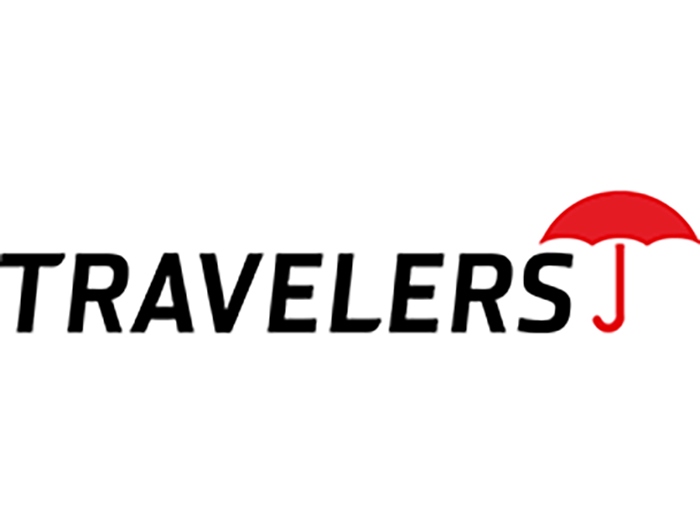Cruising at Perilous Altitudes: Why Employers Must Provide Safe Working Conditions for Traveling Employees

The world has never been a riskier and more uncertain place to do business.
Global threats have grown more pronounced in recent years — from the COVID-19 pandemic and climate change-induced natural disasters to the war in Ukraine and the supply chain crisis.
These problems have been fueled both internally by countries’ citizens and externally by different states, often in a sudden and unpredictable manner, resulting in unrest and conflict.
Caught in the crosshairs of all this are the employees who have been sent overseas or even just to another state by their companies. This was evidenced in a recent survey by Constella Intelligence, which found that organizations are being confronted by a staggering increase in travel risks for their executives.
If their employers make one mistake and put them in harm’s way, the consequences can be devastating, not only for the individual concerned and their family but also in terms of the losses incurred by the business. That’s why, as travel restarts post-pandemic, it’s vital for firms posting their staff to different countries or regions to have a robust risk management strategy and insurance coverage in place to ensure their safety and well-being.
“The world is a rich tapestry of risks for today’s business traveler,” said Scott Bolton, director of crisis management at Aon. “These can be grouped into two distinct categories: external risks — such as medical, security, natural disasters and geopolitical — and internal risks, which include the employee themselves.”
Employer Duty of Care
There are a host of different dangers and losses the company and the employee can expose themselves to, particularly if they operate in high-risk environments such as oil and gas firms drilling in remote areas. The chief one is the worker sustaining an injury or being killed in the line of duty.
Bolton said that, as a basic requirement, businesses need to ensure they provide a duty of care for the employee. That means preparing and supporting them in the foreign environment, as well as having the right infrastructure to respond should something adverse happen to them while they are performing their duties.
“Employers sending their staff to an unfamiliar location need to do their utmost to ensure that they don’t unwittingly put themselves in harm’s way through their actions or behaviors,” said Bolton. “Failure to ensure duty of care can result in companies exposing themselves to the potential for negligence and, therefore, liability, opening them up to claims, prosecution and reputational damage.”
To fully understand their exposure, organizations should first carry out a risk assessment of the place they are sending their employees to — including the political climate and potential for natural catastrophes — as well as their workplace and the duties they are expected to perform there.
Then they need to look at how they can minimize the opportunity for that individual to be affected by a security, medical or geopolitical issue, and plan for and provide them with the training and information necessary to ensure they mitigate these risks.
“If an employee is not familiar with a particular location, the problem can easily be compounded,” said Denise Balan, head of U.S. security risks at AXA XL. “Add to this the element of being in an international location where the employee does not speak the language and does not understand the implications of the events transpiring.
“Again, traveling employees should be educated on the laws and threat profile of the region they will be visiting. And they should understand the limited ability of their respective government to intervene in other jurisdictions.”
Staying In Touch
Employees should also be provided with emergency contact numbers and asked to check in with their employer on a regular basis to keep them updated on their travel plans and itinerary. Details of incident response, evacuation and repatriation plans are a prerequisite too.
Additionally, firms should use the technology at their disposal (such as smartphone tracker apps and geotags) to monitor an employee’s movements and automatically send out relevant real-time alerts and incident reports of potential risks in that area, including states of emergency, terrorist incidents, civil unrest, natural catastrophes, disease outbreaks and traffic problems. There are a range of platforms that enable this by giving users detailed information about current and potential exposures.
“The key is to keep tabs on employees, wherever they are, at any given time,” said Taryn Kramer, growth and transformation leader at Mercer. “Then, in the event that something happens, companies need to be able to contact them and provide them with the support they need.”
The information provided by this technology can also be used to give evidence to support any relevant claims that may arise, as well as to manage future risks — for example, to prove the location, timing and extent of a hurricane, earthquake or terrorist attack.
“Investigations into claims rely on evidence,” said Joe Frederick, operations manager at A2 Global Risk. “Apps are designed to geolocate the user with a high degree of accuracy, and this could be crucial evidence for investigations into terror-related cases.”
Where mobile signals and Wi-Fi aren’t readily available, employees need to have a fallback. This means having a map to the nearest emergency contact — whether that’s the U.S. consulate, embassy or local branch office in that country — and, where possible, access to a landline.
Should the worst happen, the worker will require assistance, whether it’s a medical, security, evacuation or other type of emergency. Insurance coverage affords direct access to crisis management experts in these fields, as well as claims resolution.
“Business travelers want to know what will happen if they get sick while traveling or have to quarantine, and who will handle the logistics and cover the expenses,” said Daniel Durazo, director of external communications, U.S., at Allianz Partners. “As a result of this new concern over what may happen during a trip, travel insurance is being considered as a way to mitigate the risk that business travelers and their employers face.”
Specialist Coverage
Insurers also provide various specialist policies that cover specific risks, such as kidnap, ransom and extortion, foreign voluntary workers’ compensation and business travel accident, as well as endorsements for the likes of natural disaster evacuation. These may include prevention consultation, country-specific information, and advice and training on local laws, customs and protocols.
“Domestic property/casualty and health insurance coverage may not be sufficient to address the international risks that U.S. organizations face when they have employees traveling or transacting business abroad,” said Brooke Guralnik, director, international benefits at Marsh McLennan Agency. “As such, they often purchase business travel accident policies, which provide first-dollar emergency medical coverage should an employee fall seriously ill or get hurt while traveling abroad.”
Michael Dangler, national specialty benefits practice leader and U.S. affinity leader at Willis Towers Watson, advises using business travel accident programs in conjunction with travel assistance service providers, adding: “Travel assistance service companies that are aligned with a business travel accident insurance program have become a primary focal point for many organizations recently. This includes providing 24/7 call center services for those traveling across the globe, and medical and security assistance as well as medical, political, security and natural disaster evacuation and repatriation support.” &









